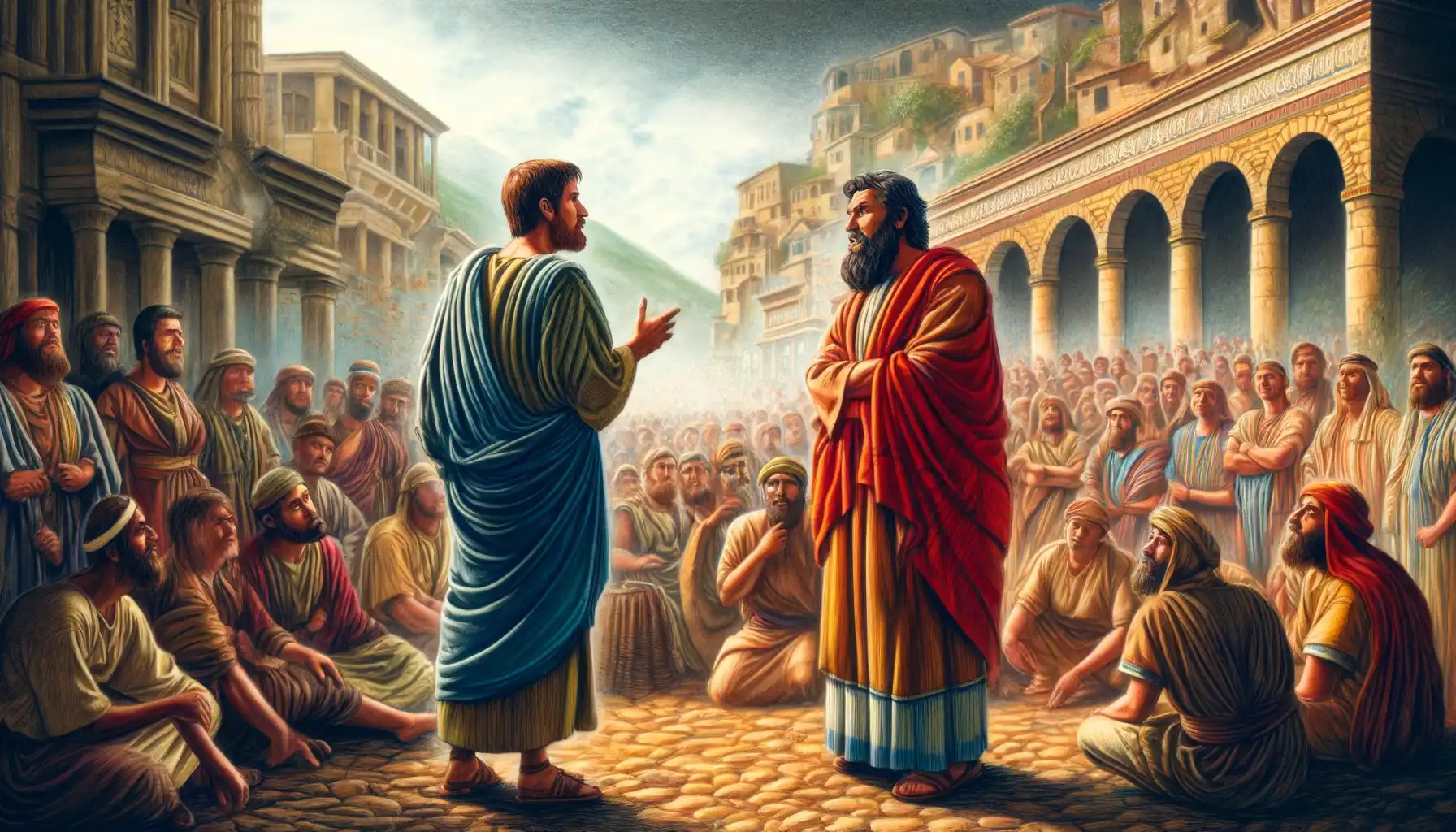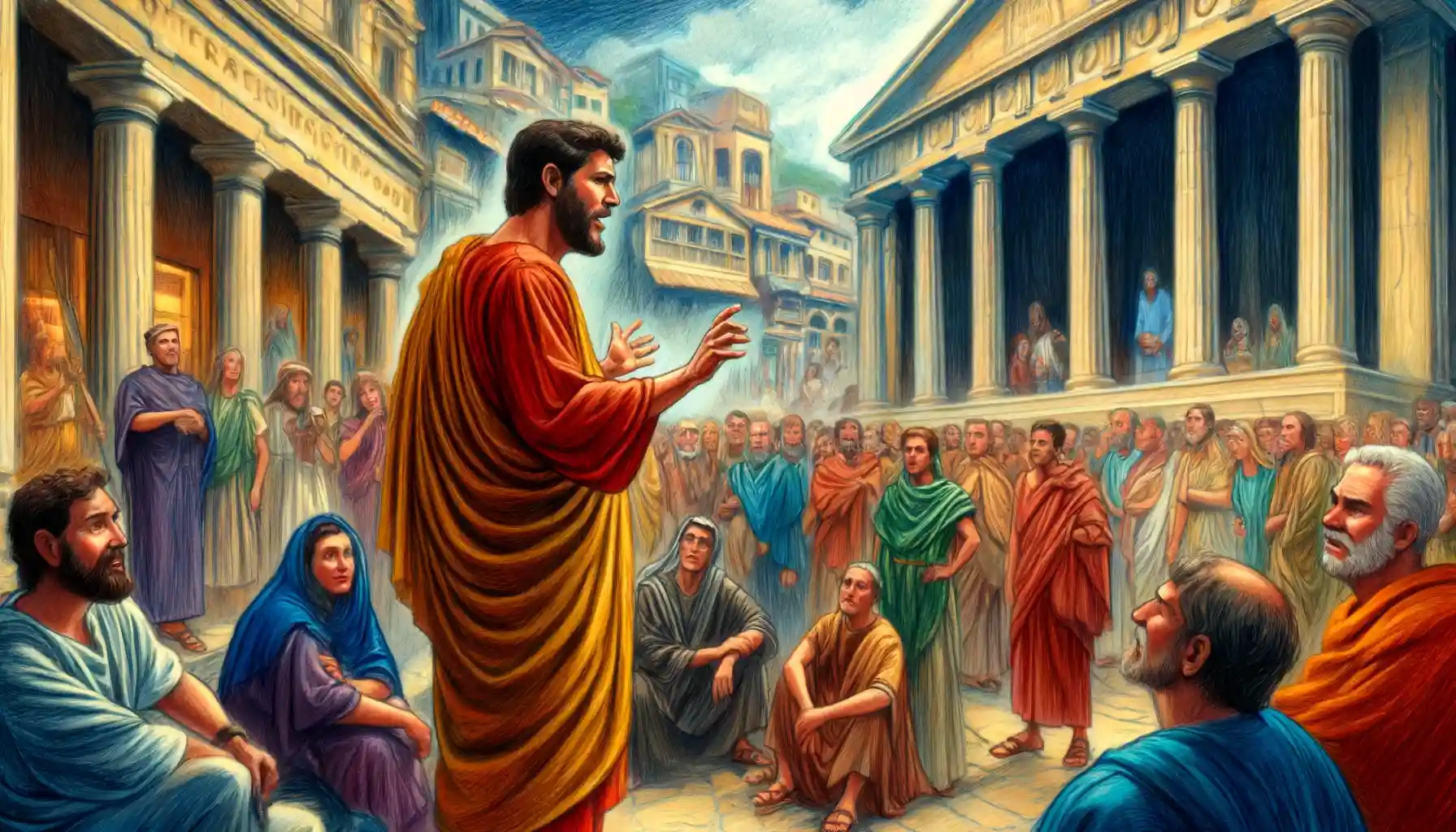The Book of Ephesians is rich in doctrinal insights and practical advice, emphasizing the exalted nature of the Church and the conduct expected of its members.
The Book of Galatians is fundamental in Christian theology for its clear articulation of the gospel of grace and its vigorous defense of the doctrine of justification by faith. It remains a powerful source of theological insight and ethical guidance.
The Book of 2 Corinthians provides a complex blend of personal reflection, doctrinal teaching, and practical advice, highlighting the enduring challenges and profound rewards of Christian ministry.
The Book of 1 Corinthians remains a vital text for understanding early Christian life and the practical and theological challenges faced by emerging Christian communities.
The Book of Romans is foundational for understanding Christian doctrine, particularly Pauline theology, and remains a cornerstone for theological reflection and discourse within Christianity.
The Book of Acts is vital for understanding the development of the early Christian church and its teachings, serving as both a historical document and a theological treatise.
The Gospel of John remains a foundational text for Christian theology, offering a rich and deeply spiritual perspective on Jesus Christ’s identity and His teachings.
The Parable of the Prodigal Son not only teaches about forgiveness but also offers a mirror to every individual’s spiritual journey, encouraging a heartfelt examination of one’s own life and actions in the light of God’s infinite mercy and love.
The Gospel of Luke is notable for its narrative richness, theological depth, and emphasis on the compassionate and universal nature of Jesus’ ministry.
The Gospel of Mark remains a foundational text for understanding the life and teachings of Jesus, offering insights into his profound impact and the essence of his message.










